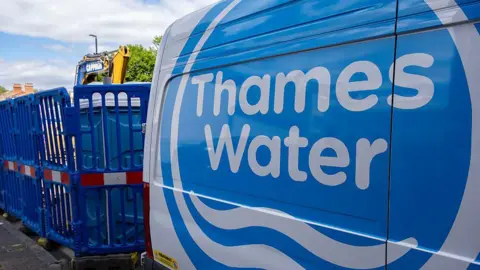In a significant development within the UK water sector, Thames Water has encountered a serious setback as KKR, a prominent American private equity firm, has decided to withdraw from its plans to acquire the company. This withdrawal marks a crucial moment for Thames Water, as KKR was initially chosen as the preferred bidder to provide an infusion of £4 billion—capital that the UK’s largest water provider critically requires. This unexpected turn of events heightens concerns about the potential collapse of Thames Water into government-supervised administration, which could endanger not only the company’s operations but also the vital water services it provides to millions.
The announcement of KKR’s exit has been met with disappointment from Thames Water, which is now pivoting towards engaging other potential investors who had previously expressed interest in acquiring a stake in the company. While the company called the news disappointing, it remains determined to explore different avenues for securing the necessary funding for its ongoing operations and long-term viability.
Compounding the situation, Thames Water is currently in a precarious position wherein it is effectively owned by its lenders. These lenders have reportedly devised an alternative plan aimed at raising equity—reportedly, this plan is both ready and fully funded. This situation hints at a complex financial web wherein the company’s future may hinge upon the decisions of its lenders rather than on external private equity investments.
KKR’s departure came on the same day that an independent commission released interim findings from a review focused on how the water industry in the UK could potentially be reformed. This review was anticipated to possibly facilitate new investments within the sector, potentially rendering it more appealing to companies like KKR. However, insiders close to KKR’s deliberations have suggested that the increasing politicization of the water industry acted as a key disincentive for the firm to pursue the acquisition deal further. This points to a broader issue wherein the interrelation of government policies and private investments impacts investor confidence and willingness to engage with critical infrastructure markets like the water supply.
The implications of KKR’s withdrawal from the Thames Water bid are far-reaching. If Thames Water cannot secure a new investor or find a viable pathway towards restructuring under its current ownership, the risk of a government takeover becomes increasingly tangible. Such a scenario would not only reshape the landscape of the UK water industry but also provoke profound consequences for the employees, stakeholders, and, crucially, the customers who rely on Thames Water for their daily water needs.
Looking ahead, Thames Water’s management must focus on stabilizing the company’s financial position through strategic negotiations with existing investors while being proactive in seeking fresh capital from other interested parties. Additionally, navigating the political landscape and public sentiment surrounding water privatization in the UK will be a critical factor as the company seeks to secure its future.
In sum, the setback with KKR serves as a stark reminder of the volatile nature of private equity investments in essential public services. The coming weeks and months will be critical for Thames Water as it seeks to navigate a complex environment of financial pressures, investor hesitations, and increasing regulatory scrutiny—all while striving to fulfill its obligations to the public it serves. The future of Thames Water hangs in a delicate balance, poised at a crossroads that could determine not only its fate but also the future of water services in the UK as a whole.



